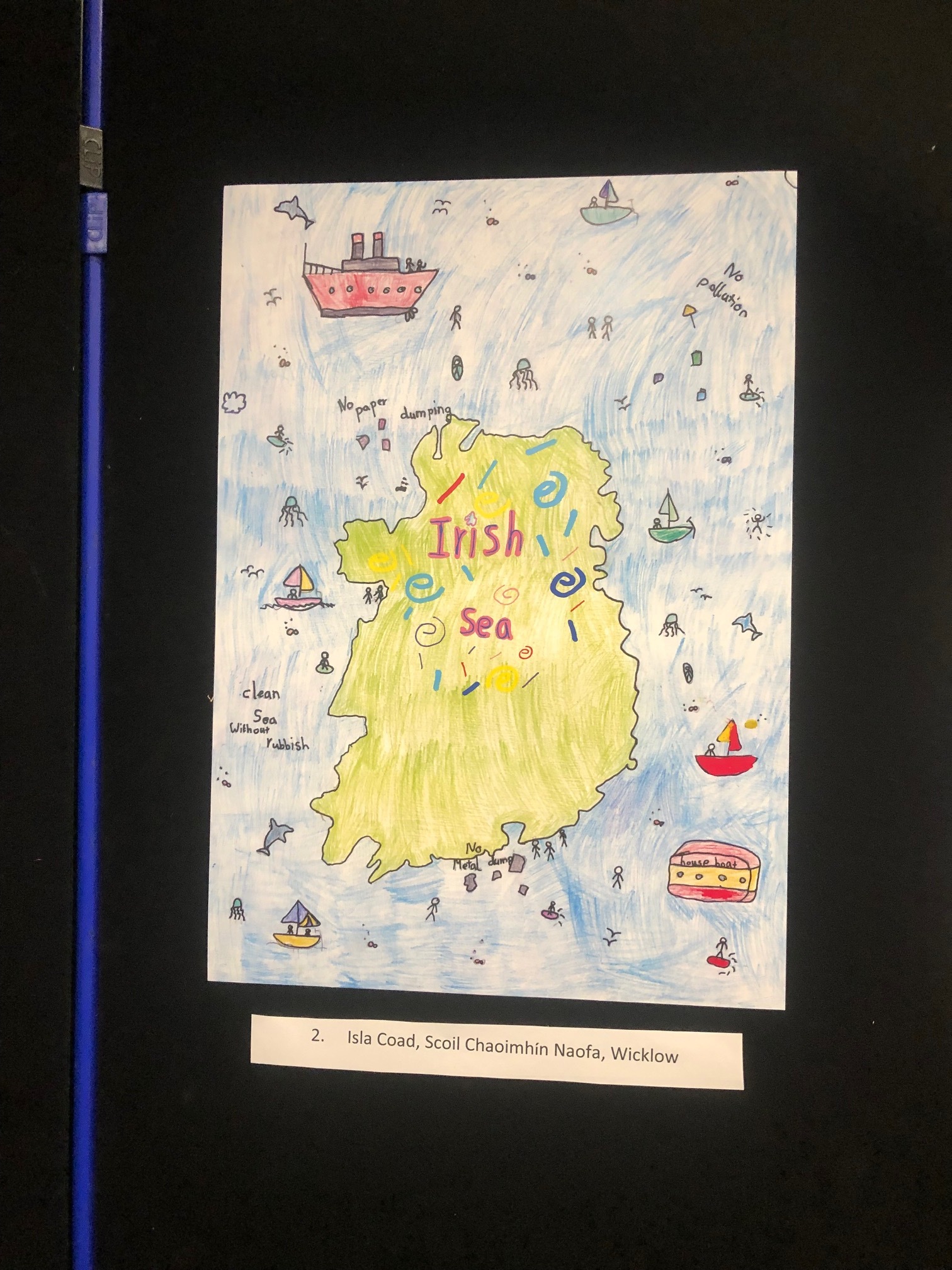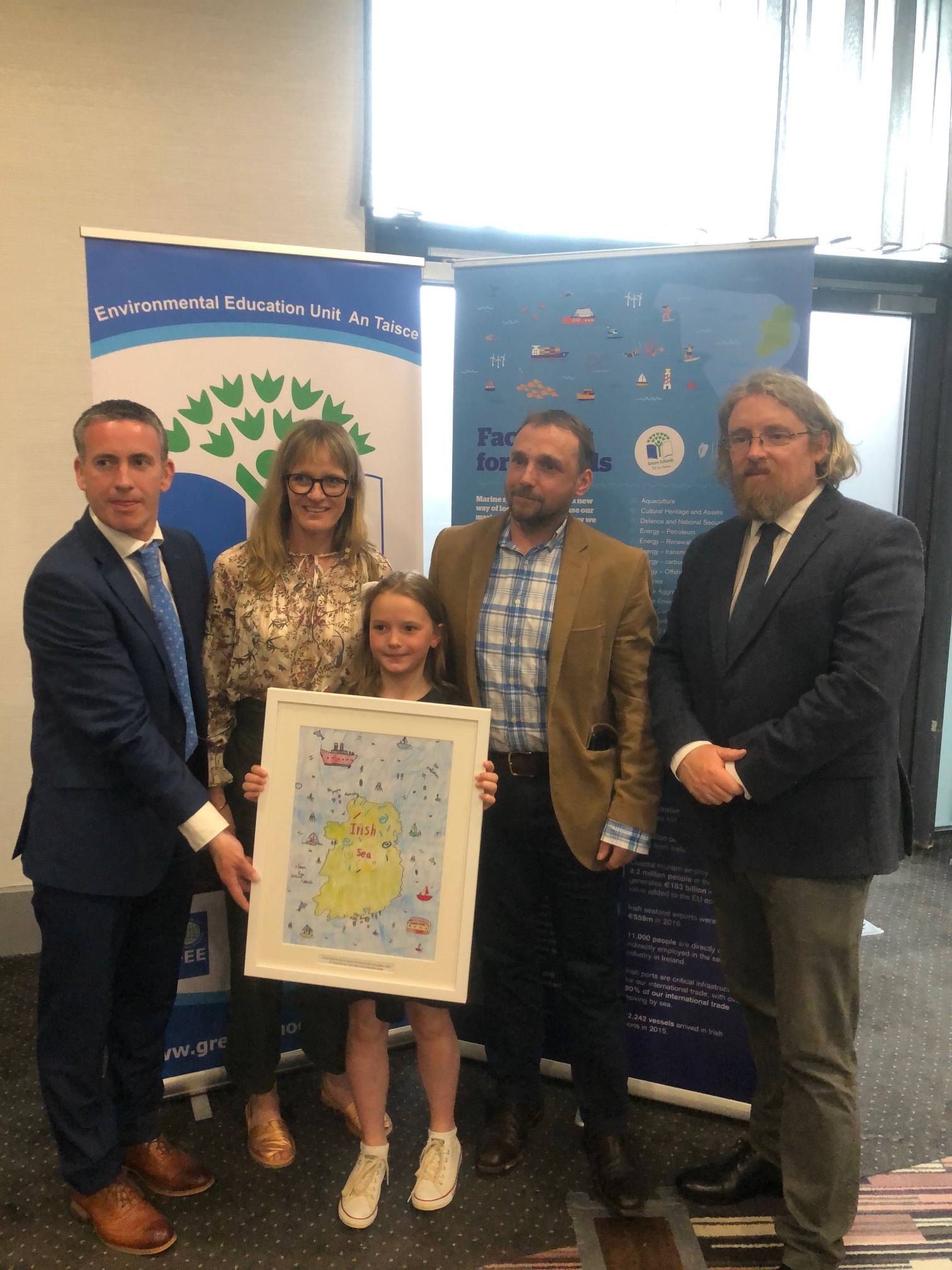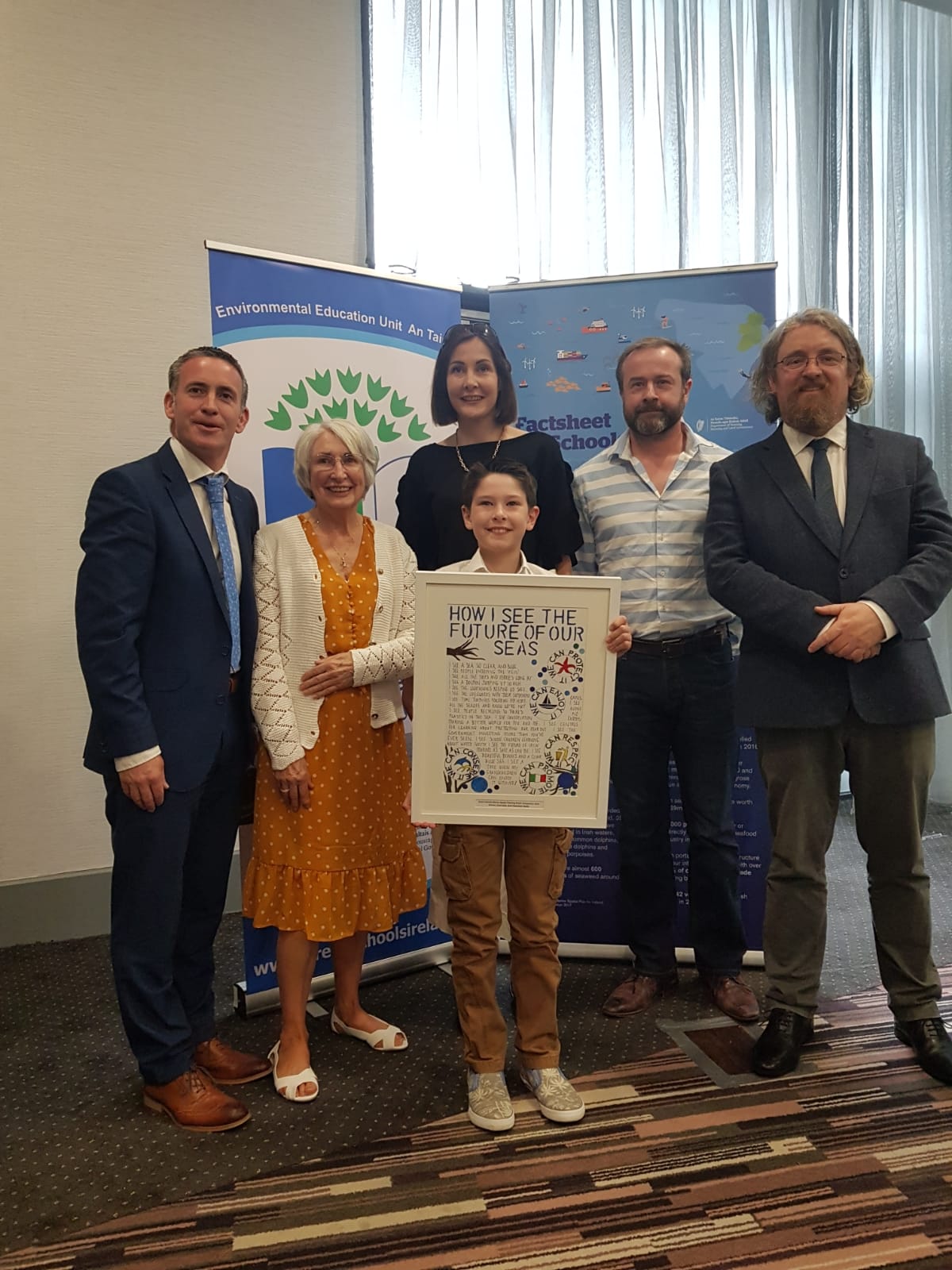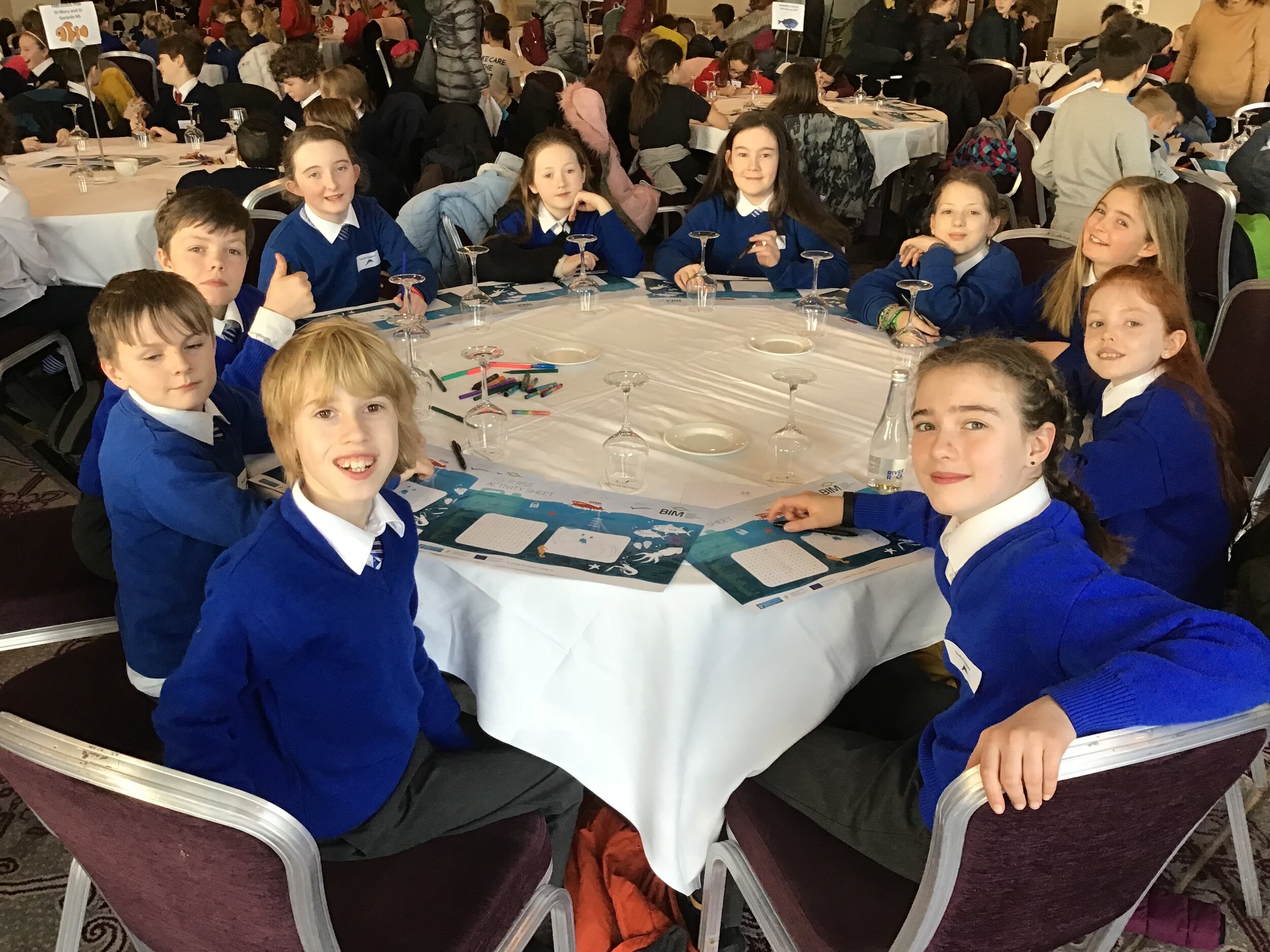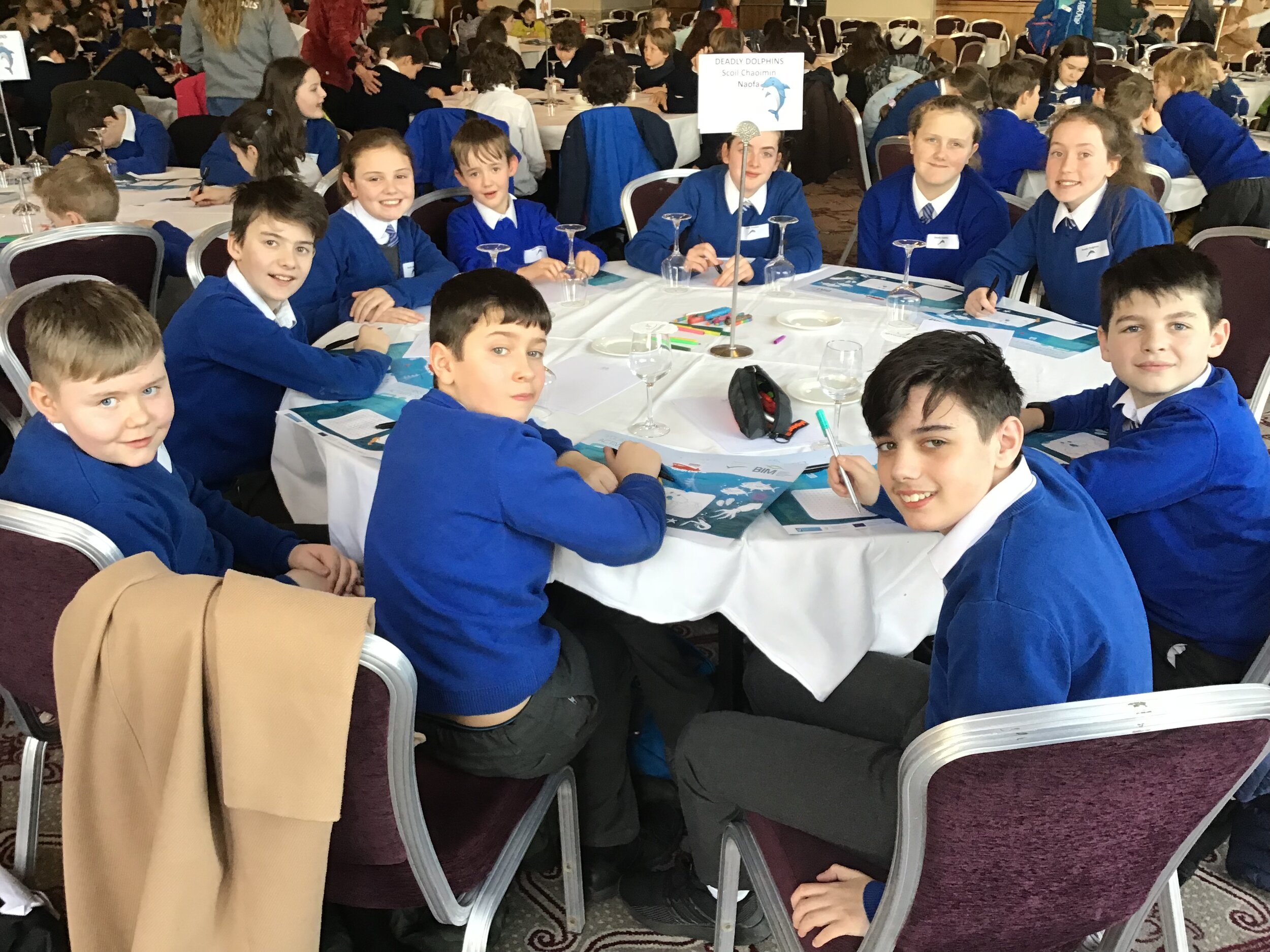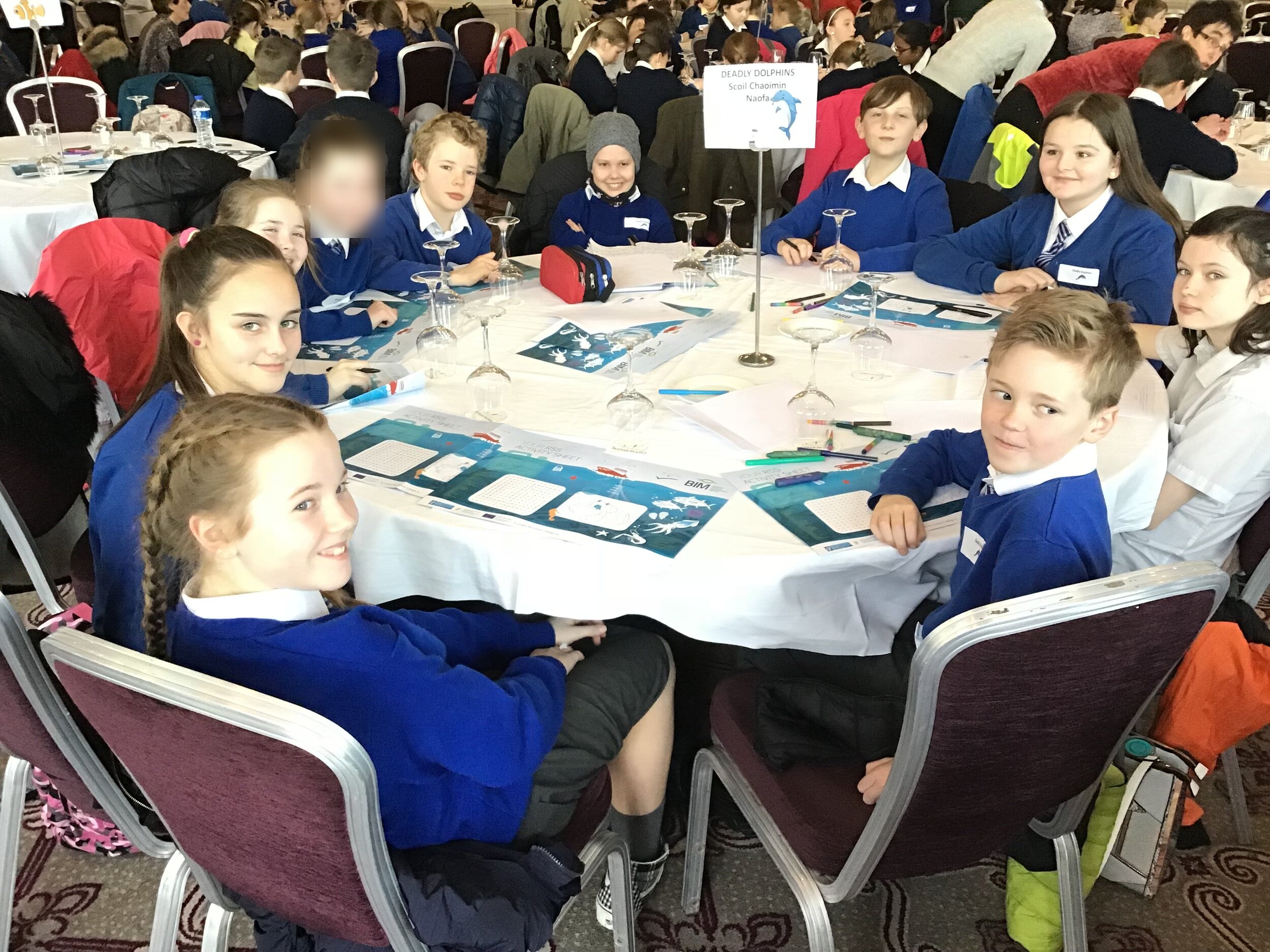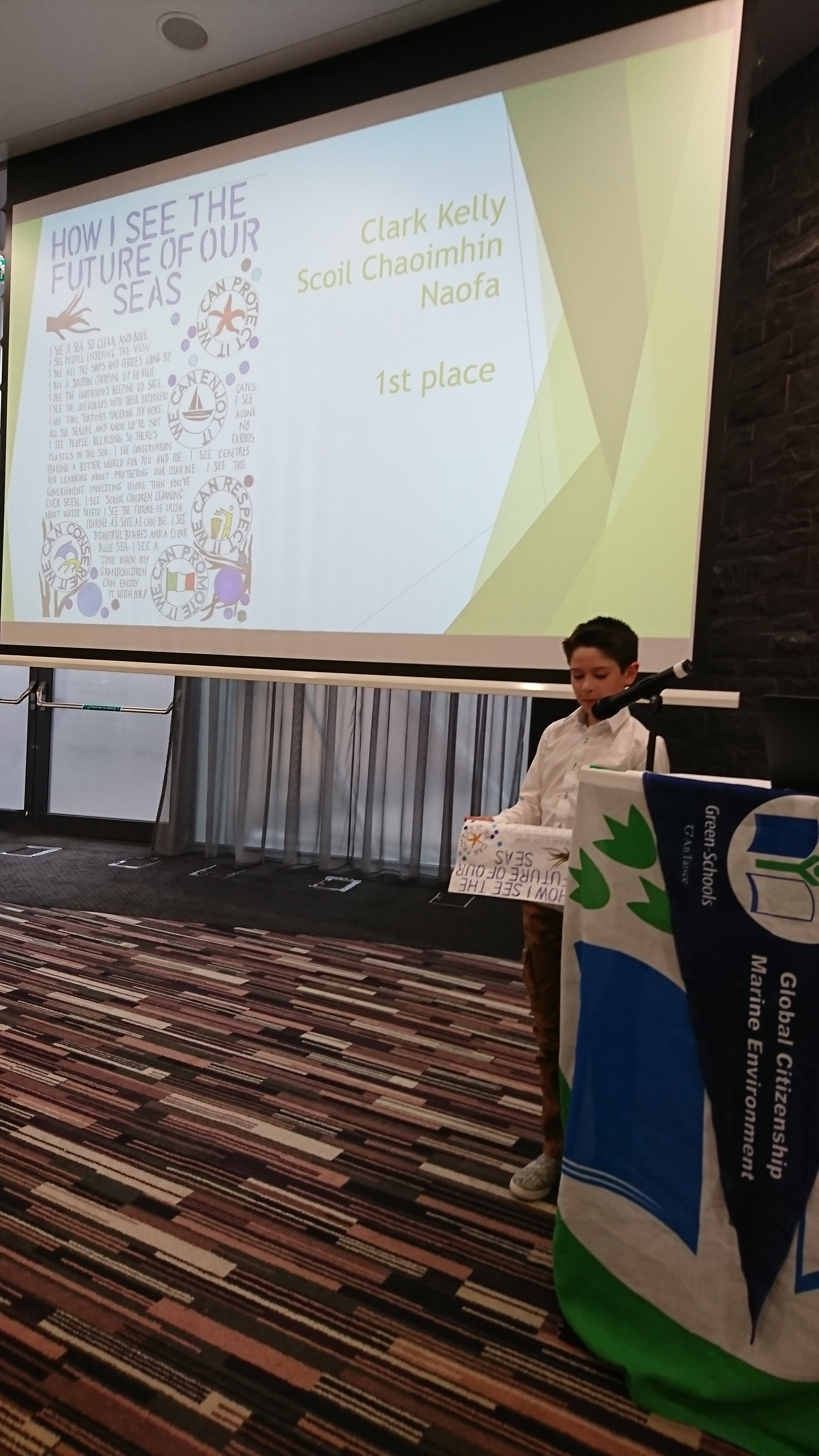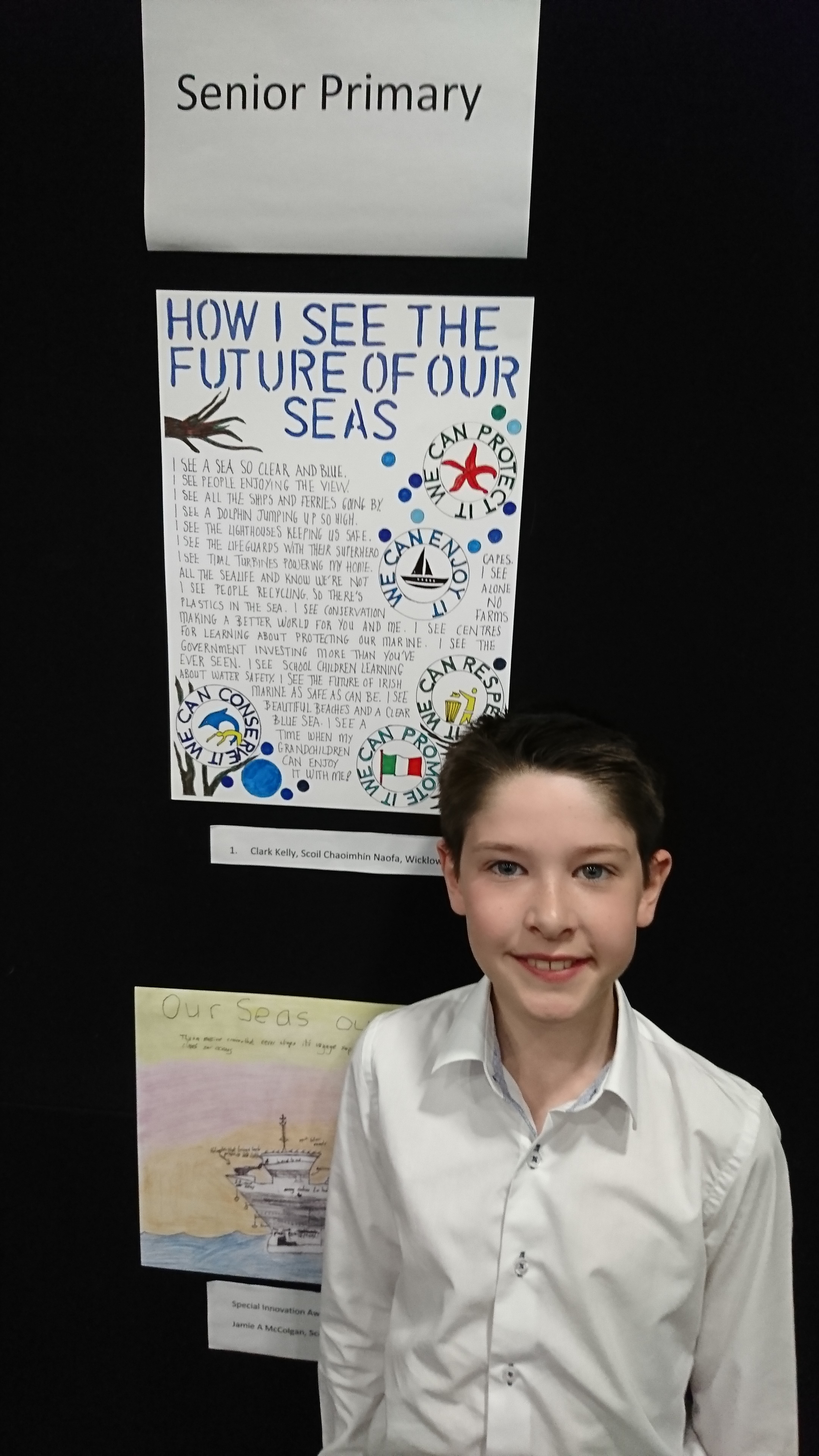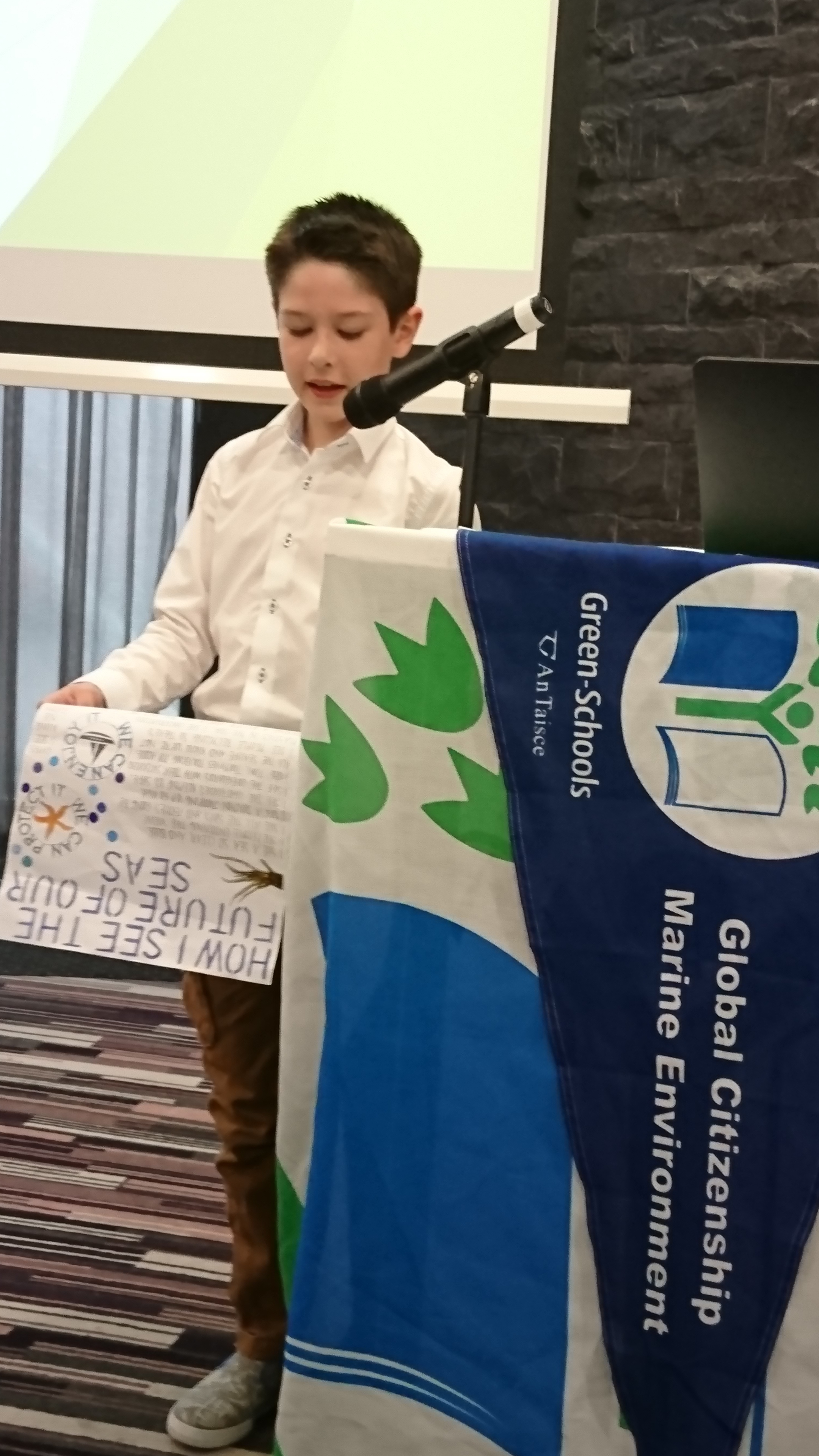Green School
Green Schools is Ireland’s leading environmental management and award program. It promotes long-term whole-school action for the environment, Green Schools is a student -led programme with involvement from the wider community. The programme is operated and coordinated by the Environmental Education Unit of An Taisce (Fee member for Ireland.
We are so proud of the work every student both past and present, has put into our Green School programme.
Our School is a Green Shcool
We were awarded our first flag for waste in 2006.
This is a picture from our Seventh Green Flag Ceremony 2018
Themes of the Green-Schools Programme
-
Litter & Waste is the first theme. It focuses on litter and waste issues, encouraging a sense of responsibility.
Litter is a man-made issue, it not only affects our surrounding environment and wildlife, it can also affect our health and wellbeing. By taking initiative to tackle the problem, students and the local community will notice an improvement in their local environments, resulting in a strong sense of personal pride and responsibility.
Waste is a mounting problem and we are generating more than ever. Single-use items such as plastic bottles and over-packaged produce are now commonplace. By changing the way we consume, we can help create a cleaner, healthier planet.
-
Energy looks at the steps which can be taken at school to reduce energy consumption and raise awareness of climate change.
Science defines energy as the ability to do work.
Energy is all around us and comes in different forms – heat (thermal), light (radiant), mechanical, electrical, chemical, and nuclear energy. We use energy for everything we do, from running to catch a bus to cooking a pizza, from flying a kite to sending astronauts into space! Although there are many forms of energy, most can be put into two categories: kinetic and potential. Perhaps your class can carry out a project examining kinetic and potential energy in more detail?
Energy Sources
We get the energy we use on a daily basis from different sources. They are divided into two main groups – renewable (an energy source that we can use over and over again) and non-renewable (an energy source that once used up cannot be replaced in a short period of time).
Non-renewable Energy
Most of the energy we use comes from fossil fuels such as gas, oil, peat, coal and petrol. This energy is used every day in homes, businesses, schools and for travel. Millions of years ago energy from the sun was absorbed by plants, some of which were eaten by animals. When the animals and plants died, they were covered with mud and waste and became part of the earth’s crust. For millions of years, they were squeezed together and heated from the centre of the earth until they turned into the fossil fuels that we use today. Crude oil (petroleum) is a naturally liquid fossil fuel, natural gas and propane are normally gases, and coal is a solid. Coal, oil, natural gas, and propane are all considered fossil fuels. Peat, a ‘young’ fossil fuel that takes several thousand years to mature, is also an important non-renewable energy source in Ireland. We turn some of these fuels into electricity to light and heat buildings and to heat water. A lot of appliances in our homes need electricity to work.
Burning fossil fuels produces carbon dioxide. Carbon dioxide is one of the greenhouse gases which are causing climate change. Greenhouse gases cause the earth to heat up by trapping the sun’s heat in the earth’s atmosphere. Climate change is causing the earth to become warmer.
-
This theme develops awareness around water conservation and how to manage this valuable resource in schools effectively.
Water is essential to all life. By establishing the Water theme, you will find out where your water is coming from, be mindful of how it’s used and take steps to protect our most precious resource.
-
This theme aims to increase the number of students walking, cycling, scooting, using public transport or carpooling to school.
Green-Schools Travel was rolled out nationally in September 2008 after a successful pilot programme in the Greater Dublin area. Since then we have worked, or are working, with over 1400 schools around the country to promote sustainable travel to school.
-
Biodiversity looks at increasing awareness in schools of the importance of native plants, animals, and habitats.
The meaning of ‘Biodiversity’ is easier to understand when we break the word down; “bio” refers to life and ‘living things’ and “Diversity” means just that: range or variety. The word refers to the huge variety and variation of life that is all around us. The more diversity of living things we have, the better! The environment is stronger, healthier and more resilient when there are lots of different types of plants and animals living in it.
-
This theme enables schools to discover how work on Green-Schools has positively influenced our global community.
Global Citizenship Education is not just about acquiring information about the world; it is about thinking how it could be transformed. It’s about supporting young people to recognise their position in the world, think critically, engage through their values, and realise their potential to take informed solidarity action. Getting Started The Global Citizenship approach you will take throughout this theme will help you to discover how your efforts to reduce waste and tackle inequalities contribute to a global movement for more sustainable livelihoods, systems, and practices everywhere.
-
This theme enables schools to discover how work on the Green-School programme has positively influenced environments worldwide while focusing on our oceans and seas.
This theme invites schools to look at Global Citizenship in relation to the Marine Environment. Although there are five named oceans, they are all part of one large global ocean, to which we are all connected. The ocean is home to unique biodiversity, provides valuable food and resources and is also a major carbon sink. As an island, Ireland’s climate, history and culture has been hugely affected by the Atlantic Ocean. Did you know that Ireland’s maritime area is seven times the size of Ireland’s land mass? That’s a lot of ocean to protect, and that is exactly what we all need to do. Your school does not need to be a coastal school to take part in this theme. Through your Green-Schools work, you will discover the importance the marine environment plays in all our lives and learn about ways you can help to protect it.
-
This theme allows schools to explore and discover how local actions on the Green-Schools travel theme positively influence environments worldwide.
Global Citizenship Travel will allow you to discover how your work on the Green-Schools programme is having a positive effect on global issues including greenhouse gas emissions, air quality and sustainable development. The focus of your work should be to promote sustainable transport options to your students and school staff and to encourage healthy and active travel habits on the journey to school.
-
This allows schools to partake in local actions, including growing your own organic food as well as focusing on the positive global impacts of consuming locally produced foods.
There are many connections! There are the positive impacts that wildlife has on food production, for example bees pollinating many food crops and life under the soil recycling nutrients to help growing crops. There are also the negative impacts that our global food system has on biodiversity in many different areas from pesticides to the destruction of habitats for agriculture. This theme will allow you to explore these connections and many more!
Marine Environment Conference
On 29th January 2020, Fifth and Sixth Class pupils went to the Royal Marine Hotel in Dún Laoghaire for the An Taisce Marine Environment Conference. We had a fabulous day and learned a lot of fascinating facts about our oceans and about how to protect marine life. We were fortunate to hear from some experts in this field who delivered informative and engaging speeches. We got a chance to explore the amazing exhibitions from schools around the country and share our own exhibition which you will see below. We even made an appearance on RTÉ’s News2Day programme! We left the conference with renewed enthusiasm for learning about the wonderful marine environment that surrounds us and with motivation to continue our work to protect it. The sea theme continued on the journey home as we had a go at singing the sea shanties taught to us by the The Howth Singing Circle.
Marine Planning Poster Competition
Well done to everyone who took part in the Marine Planning Poster Competition. The posters were of a very high standard and illustrated a bright future for our sea.
A huge congratulations to winners Clark Kelly and Isla Coad!
Isla won second place in the Junior category and Clark won first place in the Senior category.
Isla and Clark attended an award ceremony on 15th May where Minister Damien English looked at their visions for our future sea.
